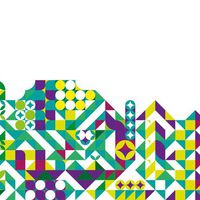Rome | Care in a World We Share with Others/Caring in a Precarious World - museum residency call

The Museo delle Civiltà in Rome is launching an open call for a residency and the production of a project on the topic “Care in a World We Share with Others/Caring in a Precarious World”. The residency will take place in the framework of the European Project Taking Care – Ethnographic and World Cultures Museums as Spaces of Care (takingcareproject.eu), co-funded by the Creative Europe Programme of the European Union.
The call is addressed to activists, artists, researchers, or cultural actors and creatives similarly engaged in contemporary efforts and interested in museum collections as sources of inspiration.
Thematic focus
The research of the residency will be based on the “Mostra campionaria” (Trade Fair) section of the former Colonial Museum of Rome, opened in 1923 and closed in the 70s of the 20th century, and currently in storage at the Museo delle Civiltà.
The collections of the Colonial Museum of Rome – a museum of colonial propaganda, whose main narrative was the exaltation of the Italian enterprises in Libya, Eritrea, Ethiopia, and Somalia – are characterized by a strong heterogeneity of objects and sections: ethnographic, artistic, archaeological, colonial history, trade, and commodities compose a contested and difficult heritage. (Please see the dossier on the history of the Colonial Museum, within the full guidelines).
The “Mostra campionaria” section contains, among others, several samples of comestible goods, raw and processed materials, woods, stones, furs, and seeds. All these materials have been taken from the Italian colonies and constantly exposed in colonial fairs in Italy (and Europe) before and after entering the Colonial Museum of Rome. This section also contains finished products such as hats, bags, shoes, buttons, made for the Italian/European taste of the time.
The objects of the “Mostra campionaria” address forms of colonial exploitation and commercial propaganda. The purpose was to spread knowledge of the products and manufactures of the colonies in order to make trade relations between the mother country and the colonies easier and more profitable. The existence of these materials, and their history, is a direct result of a series of exploitations, predations, fetishization, and of a patriarchal relationship between Italy and the colonies. In addition, this collection addresses issues concerning environmental justice, and how the world has been permanently scarred by human impact.
Given these premises, within the residency “Care in a World We Share with Others/Caring in a Precarious World” it will be important to investigate the contradictions concerning the term curate, as well as preservation (of art, heritage, memories, environment). The verb “to cu-rate” (from Latin cura, “take care”) can express ambivalent meanings, especially if it is framed within the context of the former Colonial Museum of Rome, which require the adoption of post-colonial and decolonial approaches and perspectives. Among the various collections that compose the museum, the commodities section can cover a specific role in understanding the ambiguity of the term curating, leading us back to topics that have to do with the Anthropocene, colonialism, environmental exploitation, capitalism, and gender issues.
Starting from these considerations, together with the materials and products in the collection, the resident is invited to develop a personal output coherently with the objectives of the call.
Objectives
- To engage in an intensive dialogue with museum professionals (and visitors) through the creation of different and critical perspectives.
- To experiment with innovative forms of connecting ethnographic narratives with socio-political or environmental issues.
- To find new ways to inspire and interest the public.
- To enhance a spectrum of perceptions and glances on the issues related to the heritage of colonialism.
- To develop a discourse, through various devices, able to involve a heterogeneous audience about the issues related to the interconnection between the ethnographic collections and the awareness of the colonial practice.
- To deploy an original perspective on the role and the legacy of an ethnographic collection in the contemporary world.
Please see full call details for other information and guidelines for application
Deadline: submission of applications until 20th February 2022
TAKING CARE Project description
Museums of Ethnography and World Cultures are holding a great number of collections originating from societies whose members today are involved in social, political or ecological struggles. How can they be activated to address the twinned concerns of planetary precarity and the precarity of plural societies? In what ways can they shape more democratic and equitable futures mobilising their collections and (difficult) histories? And how might they help in challenge rising exclu-sionary politics based in anxiety around others?
Within this context, the Museo delle Civiltà is committed to exploring the connections between its ethnographic collections and questions regarding the climate crisis, the Anthropocene and issues related to the afterlives of colonialism.
Similar content
deadline
03 Oct 2021
posted on
01 Mar 2012
08 Apr 2018
deadline
13 Sep 2015


